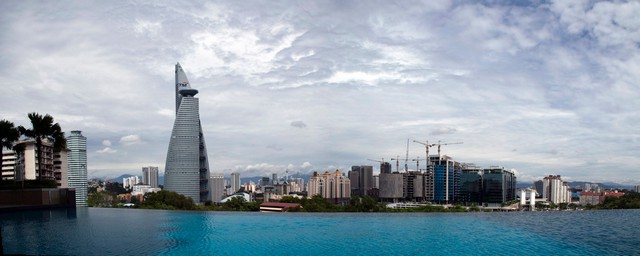By Dr. Chandra Muzaffar
What could have persuaded a government that is facing a massive trust deficit problem to establish an entity called the National Security Council (NSC) which has unfettered discretionary powers in matters pertaining to national security?
There are perhaps two possible explanations.
Is it because there has been an alarming escalation in threats to national security in the last few months which warrants the establishment of the NSC? Is there evidence to support this hypothesis? The authorities continue to crack down on alleged Daesh operatives in the country. Their networks are under constant surveillance. In fact, by and large, our security personnel appear to be acutely alert to Daesh’s manoeuvres and to other similar forms of terrorist activities. To put it differently, they are in effective control of the security situation.
Besides, Malaysia already has strict security laws such as SOSMA 2012 and POTA 2015. There is also Article 150 in the Malaysian Constitution which enables the Yang Di-Pertuan Agong to issue a Proclamation of Emergency when “public order in the Federation or any part thereof is threatened.” There is nothing to indicate that existing laws are inadequate for the purpose of protecting national security.
If Malaysia can strengthen current security measures in any way, it is by pushing for more comprehensive efforts to curb and eradicate the funding sources of terrorist outfits at the regional and international level. Malaysian authorities, there is no doubt, possess some knowledge of how groups such as Abu Sayyaf and Daesh finance their terror agendas. The Malaysian government can also try to convince some of its close friends in the international arena of the importance of destroying terrorist funding sources. Ironically, these are friends who, according to independent investigators and terrorist experts, are linked to individuals and groups who are among the major funders and exporters of terrorism in the world today.
A couple of Malaysia’s friends can help in yet another manner. They should not disseminate blatantly false ideas on Islam aimed at sowing hatred within the Muslim ummah. It is this mainly sectarian bigotry that has driven thousands of Muslims from East and West to go to Iraq and Syria to fight in meaningless battles which in the end only serve the different political agendas of actors in West Asia and North Africa (WANA) and in the West. Some Malaysian religious bureaucrats and religious preachers have also contributed to the spread of hatred and bigotry through their sermons and activities. To eliminate such false and vile religious teachings one has to develop an authentic, alternative discourse on questions of theology, history and politics which is beyond the capacity of most religious bureaucracies. Setting up a security structure such as the NSC is not the solution either.
This brings us to the second possible explanation. If the NSC is not about the security of the nation, is it about the survival of an individual who is determined to perpetuate his power? There are many instances in history of how elites in power have created conditions and established mechanisms which are aimed at ensuring that they remain in power, especially when their moral credibility is at stake. In our own case, it is sad that when fundamental moral questions are raised about the operations of the strategic state investment company, 1MDB, especially by leaders within UMNO and by public officials within the nation’s administrative hierarchy, these brave human beings are often marginalized and sometimes removed from office. Even some of the agencies investigating 1MDB are under immense pressure. It is this that has eroded further the level of trust between the leadership and the people.
Instead of tightening the screws of control through entities such as NSC, the government should focus upon the restoration of public trust in the leadership. Apart from being honest and transparent about 1MDB and the related issue of 2.6 billion ringgit in the Prime Minister’s personal bank account, the ruling elites should demonstrate through actual deeds that they are sincere about combating high-level corruption and about maintaining a modest lifestyle. Effective measures designed to curb the rising cost of living and reduce unemployment are also necessary to close the trust deficit between the government and the people. It is equally critical that leadership proves that it is firm but fair each time an ethnic controversy surfaces whether in the form of some crass remark about citizenship or through some subtle attempt to undermine the position of Malay as the sole official and national language of the land. In a multi-ethnic society, firm, fair leadership invariably enhances trust between leader and led and among different communities.
Kuala Lumpur.
9 December 2015.

